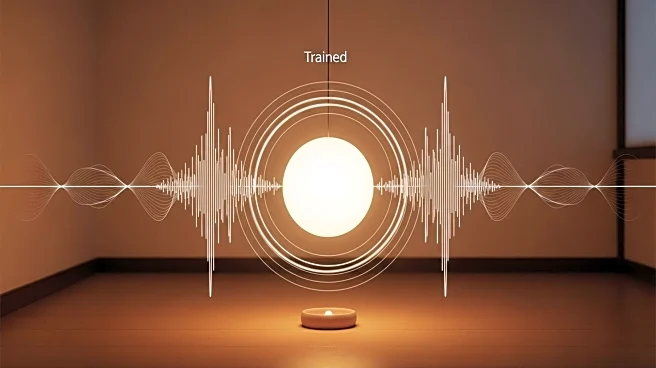What is the story about?
What's Happening?
Recent research has explored the acceptance and evaluation of AI-generated mindfulness exercises, focusing on the role of voice and personality factors. The study found that AI-generated exercises using trained voices with matching personality traits are perceived as more human-like and are more readily accepted compared to those using untrained voices. The research indicates that while the quality of prompting did not significantly affect acceptance, the appropriateness of the AI voice's personality plays a crucial role in reducing eeriness and improving human likeness. The study suggests that AI-generated mindfulness exercises can be as effective as human-led exercises, potentially offering a cost-efficient solution for personalized mental health support.
Why It's Important?
The findings highlight the potential of AI-generated mindfulness exercises to provide accessible mental health support, especially in contexts where human resources are limited. By using trained AI voices that match the social context, these exercises can bridge the 'uncanny valley' and be perceived as more human-like, increasing their acceptance. This development could lead to broader implementation of digital mental health tools, offering support in settings such as inpatient care or during waiting periods for mental health treatment. The ability to tailor exercises to individual needs and preferences further enhances their potential efficacy, making them a valuable tool in the mental health landscape.
What's Next?
Future research is needed to explore the practical efficacy of AI-generated mindfulness exercises in clinical settings. Investigations into the role of specific prompting and tailoring for mental health outcomes could further refine these tools. Additionally, understanding the impact of voice-context congruency on acceptance and realism ratings will be crucial for optimizing AI-generated content. As AI-driven mindfulness exercises gain traction, their integration into healthcare systems could address gaps in mental health support, particularly during periods of staff shortages or for individuals awaiting treatment.
Beyond the Headlines
The study also touches on the concept of 'AI hyperrealism,' where AI-generated content is perceived as more realistic than real content. This phenomenon could enhance the effectiveness of AI-generated mindfulness exercises by exaggerating mindfulness-relevant features. The research underscores the importance of context in the perception of AI-generated voices, suggesting that voice personality preferences are influenced by the social or application context. As AI continues to evolve, understanding these nuances will be key to developing effective digital mental health interventions.















